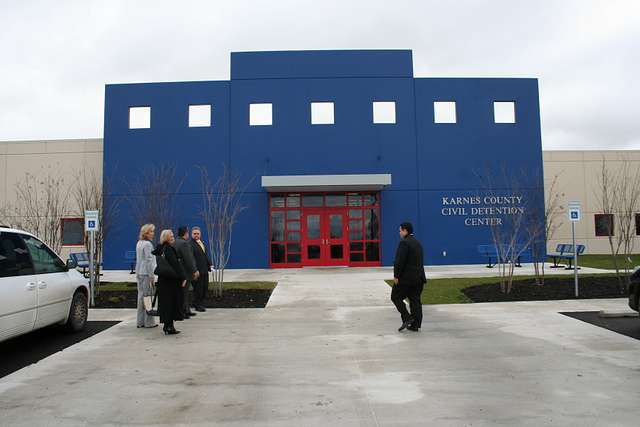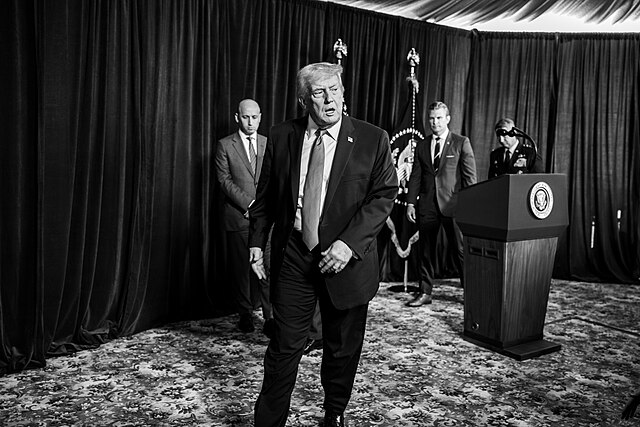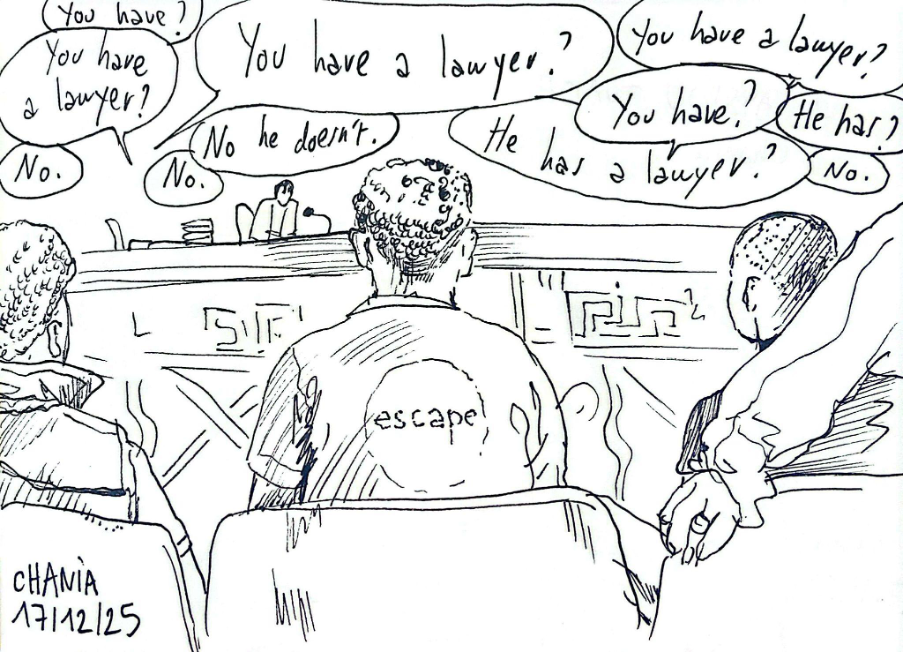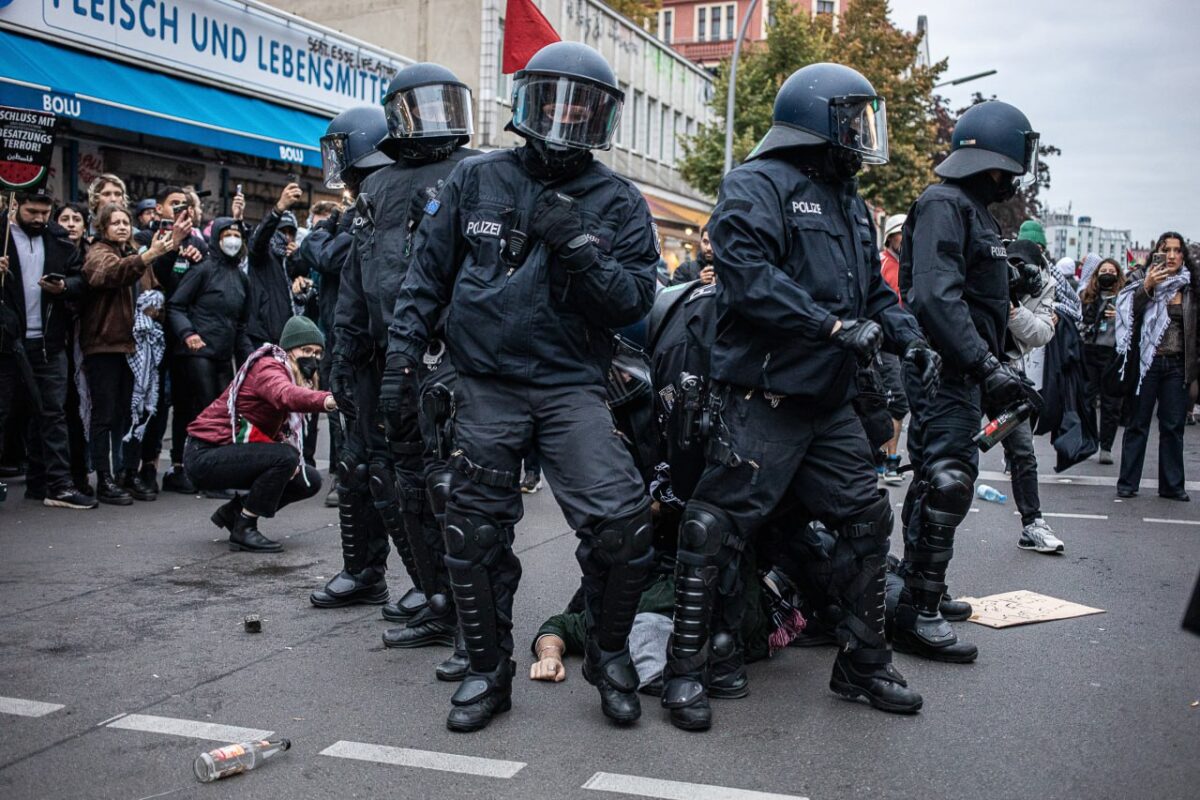In March, Rebecca Burke’s trip to the United States and Canada took a dark turn. The Welsh artist planned to travel in the northwest USA and Canada for less through Workaway, a site which pairs volunteers with organizations and private individuals offering lodging. When Burke arrived at the Canadian border with her tourism visa, officials determined that her volunteer activities constituted housing in exchange for labor. They sent her back to the US saying that she must apply for a working visa there. Back in the US, she was labelled an illegal alien and detained by Immigration and Customs Enforcement (ICE).
Burke had not been closely following US immigration politics before her trip, but since seeing the inside of a detention center, she is committed to sharing the stories of the many who are still detained. Human rights organizations have decried the mistreatment and living conditions of detainees since the inception of ICE in the 2000s. However, due to new detention and deportation enforcement goals set by the Trump administration, ICE has expanded their criteria for whom to detain. Instead of searching for and arresting individuals with criminal records or non-legal immigration status––which could require up to 6 officers to carry out––ICE is now detaining anyone without permanent US citizenship and asking questions later. Their methods include racially profiling potential immigrants on the street, denying visa renewals and immediately detaining the applicants, and questioning arriving travellers at airport customs. The result is a higher rate of detentions and packed detention centers.
This new process has consequences for many demographics, from asylum seekers to current green card and visa holders. It also seems to be affecting even those who have no intentions of staying: tourists. In the cases where reasons for detention were given, these reasons vary, although some emerging trends for why someone might be flagged as suspicious include political dissent, previous visa or legal problems (even those that have been resolved), crossing of the Mexican or Canadian border, and perceived intent to work on the wrong visa. In some cases the visitors were simply detained for 24 hours. Others, who were not so luckily, were imediately detained in ICE detention centers without opportunity to speak to a lawyer or buy a flight home
Further details on several prominent cases:
Case: Political dissent; time detained 24 hours. On March 9th, a french space researcher (who prefers to remain anonymous) arrived in Houston, Texas to attend a scientific conference. His personal phone and computer were searched and then confiscated at US customs. The scientist was critiqued for having messages “that convey hatred towards Trump and can be described as terrorism,” and even threatened with an FBI investigation, according to the l’Agence France-Presse (AFP). He was then banned from entering the United States and sent home the next day. The spokesperson for the US Department of Homeland Security denies that the researcher’s removal was related to political beliefs. According to her, the scientist had confidential information from Los Alamos National Laboratory on his device. The case has made international news and garnered strong critique from French government officials and educational insitutions. Several scientific institutions in France now recommend that researchers only travel to the US with devices that have been wiped of personal information.
Case: travel across Mexico border; time detained 16 days. Lucas Sielaff, a German tourist, was visiting his fiancée in California. The couple crossed the border to Mexico in order to treat their sick dog at a cheaper vet. Upon their return, a border guard became suspicious that Sielaff was intending to live illegally in the US despite him still being within the 30 days of his allowed stay. He was detained for almost 2 weeks in a detention cell with 128 other men before being allowed to buy a flight home.
Case: perceived intent to work; time detained 6 weeks. On January 15th, German tattoo artist Jessica Bröche was detained at the US-Mexico border because she mentioned that she would give her friend a tattoo upon arriving in California. The border guards interpreted this as intent to work on a tourist visa. Her friend maintains that it was meant to be an artistic exchange. Despite her case making international headlines she was not allowed to return to Germany until mid-March. Her detention included 8 days of solitary confinement.
These are only a few of the cases which made the news. Other stories of detentions and 24 hour holds include that of Fabian Schmidt, Celine Flad (Germany), Jasmine Mooney (Canada), and Rebecca Burke.
Both Burke and Mooney experienced unnanounced periods of waiting; stays in prison-style holding cells with more than 10 other detainees; questionable sanitation standards; and inadequate provisions for comfort, including lack of pillows and sheets, meager food, and constant fluorescent lighting. Neither was given the option to consult a lawyer, buy a flight, or receive answers as to how long they would stay in detainment.
Mooney emphasized at the end of her interview with the Guardian that she is against illegal immigration, but believes that the ICE detention system should be more fair to people who actually want to leave the country or to stay in the country lawfully. At the same time, Mooney points out the connection to the profit motives behind the detention centers. While ICE is a government agency, the detention centers used by ICE are in fact run by private companies, and receives government funding based on number of detainees. Thus, the companies lobby the government for harsher immigration laws. Not only does this reinforce a vicious cycle, but it would seem to also be overwhelming the system itself.
Even if ICE detention centers were not morally compromised by profit, is there a way that immigration detentions could be more “fair”––i.e., not affect legal immigrants and tourists? According to the ACLU, US citizens and permanent residents do not legally have to answer questions about religion or politics or provide passwords for personal devices in order to enter the country. However non-US citizens do not have this right. Thus, it is completely legal for ICE to detain anyone who is not a US citizen or permanent resident without giving a reason. In a system where any non-US citizen or permanent resident is potentially an illegal immigrant, illegal immigration could be immigration without the right papers, immigration with the wrong information on your phone, immigration with an unconventional itinerary, or even immigration while trans, nonbinary, or intersex.
Most of the tourists mentioned in this article are home now. Most were only detained a few weeks thanks to making national headlines in their home countries. The day after Burke’s father told her story on a news show in the UK, an ICE agent approached her to inform her that she was now being prioritized for being processed. She was released and sent home 4 days later. However, most detainees are not tourists and do not receive nationwide attention. Many could not afford a lawyer or do not qualify for the pro-bono lawyers who only represent asylum seekers. Some have been waiting for months or years in temporary holding facilities. The horrid conditions at ICE detention centers are old news in the US and around the world. But now, with renewed interest from the tourist cases, perhaps it will become more apparent that an injustice for some will sooner or later affect us all.
Further reading:




